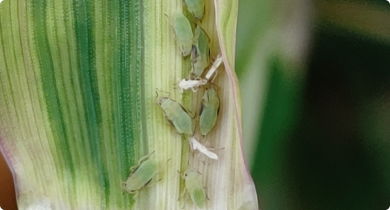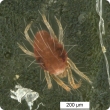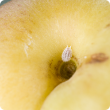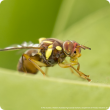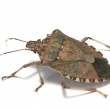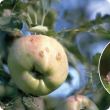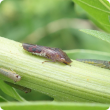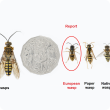Crops
The Department of Primary Industries and Regional Development continues to support the growth and international competitiveness of all crop industries in Western Australia.
With a 2400 kilometre span from its tropical north to its temperate south, WA supports a broad range of cropping industries from rain-fed winter cereals through to irrigated horticultural crops.
In the 2012/13 year the WA cropping industries exported a total of $3.9 billion which comprised: $3.1 billion of cereals, $859 million of pulses, pastures and oilseeds, $142 million of horticultural crops. The major contributors to these exports were wheat ($2.7 billion), canola ($756 million), barley ($377 million), lupins ($42 million), carrots at $48 million, oats ($12 million), and strawberries at $5.5 million.
Filter by search
Filter by topic
- (-) Remove Biosecurity filter Biosecurity
- (-) Remove Pests filter Pests
- Biosecurity & quarantine (21) Apply Biosecurity & quarantine filter
- (-) Remove Pests, weeds & diseases filter Pests, weeds & diseases
- Plant biosecurity (19) Apply Plant biosecurity filter
- Horticulture (18) Apply Horticulture filter
- Pest insects (15) Apply Pest insects filter
- Fruit (9) Apply Fruit filter
- Vegetables (6) Apply Vegetables filter
- Diseases (4) Apply Diseases filter
- Nursery & cutflowers (4) Apply Nursery & cutflowers filter
- Quarantine (3) Apply Quarantine filter
- Potatoes (3) Apply Potatoes filter
- Emergency response (3) Apply Emergency response filter
- Agricultural emergency response (3) Apply Agricultural emergency response filter
- Intrastate movement (2) Apply Intrastate movement filter
- Grapes & wine (2) Apply Grapes & wine filter
- Mangoes (2) Apply Mangoes filter
- Biosecurity and Agriculture Management Act (2) Apply Biosecurity and Agriculture Management Act filter
- Grains (2) Apply Grains filter
- Biosecurity governance (2) Apply Biosecurity governance filter
- Production & postharvest (1) Apply Production & postharvest filter
- Postharvest (1) Apply Postharvest filter
- Sweet potato (1) Apply Sweet potato filter
- Weeds (1) Apply Weeds filter
- Pome fruit (1) Apply Pome fruit filter
- Pastures (1) Apply Pastures filter
- Importing to Western Australia (1) Apply Importing to Western Australia filter
- Irrigated crops (1) Apply Irrigated crops filter
- Mites & spiders (1) Apply Mites & spiders filter
- Pest animals (1) Apply Pest animals filter



